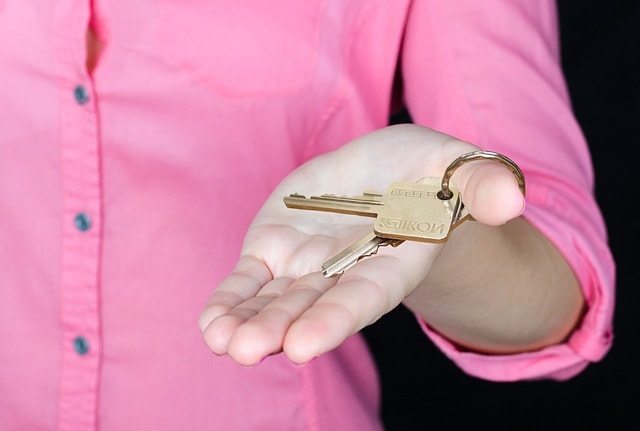Renters Rights For 2024: How to Protect Yourself

Introduction: Understanding Your Rights as a Tenant
As a renter, knowing your rights is crucial for a positive living experience and a fair relationship with your landlord. This comprehensive guide will walk you through the essential aspects of renters’ rights, providing you with the knowledge to navigate your tenancy confidently.
1. How to Secure Your Rights with a Proper Lease Agreement

A well-written lease agreement is your first line of defense in protecting your rights as a tenant. Here’s how to ensure your lease serves you well:
- Always opt for a written agreement over verbal arrangements
- Read the lease carefully before signing
- Ensure all verbal promises are included in writing
- Understand all terms, especially regarding rent, security deposit, and lease duration
- Ensure that if the landlord agrees to any modifications, these changes are documented in writing to protect both parties
- Don’t hesitate to negotiate terms that seem unfair
Remember, while landlords might prefer oral agreements, a written rental agreement clearly outlines your rights and responsibilities.
2. How to Handle Security Deposits Properly

Security deposits are often a point of contention between landlords and tenants. Here’s how to protect yourself:
- Know your state’s limits on security deposit amounts (usually 1-2 months’ rent)
- Understand the difference between a security deposit and last month’s rent, and know that some landlords may require last month’s rent in advance to cover the final month’s rental fees.
- Document the property’s condition at move-in with photos and a written inventory.
- Understand what constitutes “normal wear and tear”
- Request an itemized list of any deductions when moving out
- Know the timeline for deposit return in your state (usually 14-30 days)
If your landlord fails to return your deposit or provide an itemized list of deductions within the legal timeframe, you may be entitled to additional compensation.
3. How to Ensure Necessary Repairs Are Made According to Tenant Rights
Landlords have a responsibility to maintain the property in a habitable condition. Here’s how to address repair issues:
- Report needed repairs promptly in writing
- Use certified mail with return receipt requested for critical communications
- Give your landlord reasonable time to make repairs (usually 7-30 days, depending on the issue)
- Know your rights regarding “repair and deduct” if your landlord fails to act
- Be aware that landlords are not obligated to repair damages caused by you or any other lawful occupant of the property.
- Understand what constitutes an emergency repair affecting physical health or safety
Remember, it’s illegal for a landlord to retaliate against you for requesting necessary maintenance.
4. How to Navigate Rent Payments and Increases
Understanding your rights regarding rent can save you from potential disputes:
- Always get rent receipts, especially for cash payments
- Know your state’s laws on rent increase notices (usually 30-60 days)
- Understand that landlords may require the last month’s rent upfront as part of the leasing agreement
- Understand that rent control, if applicable in your area, may limit increases
- Be aware that your landlord cannot raise rent during a fixed-term lease unless specified
- Know that withholding rent for repairs is legal in some states, but follow proper procedures
5. How to Protect Your Right to Privacy
Your home is your private space, even as a renter. Here’s how to maintain your privacy:
- Understand your landlord’s right to enter (usually with 24-48 hours notice, except in emergencies)
- Know that your landlord cannot enter without permission or proper notice
- Be aware of your right to “quiet enjoyment” of the property
- Understand that landlords cannot install surveillance without tenant consent in private areas
- Know your rights regarding guest policies in your lease
6. How to Deal with Discrimination in Housing
Fair housing laws protect tenants from discrimination. Here’s what you need to know:
- Familiarize yourself with protected classes under federal and state law
- Understand that the Federal Fair Housing Act (FFHA) protects tenants from discrimination by landlords and prohibits discriminatory practices in housing.
- Recognize signs of potential discrimination in housing advertisements or landlord behavior.
- Know how to file a complaint with the Department of Housing and Urban Development (HUD)
- Understand that it’s illegal for landlords to refuse housing based on protected characteristics.
- Be aware that assistance animals are generally exempt from no-pet policies.
7. How to Handle Eviction Threats
Eviction is a serious matter, but tenants have rights in this process:
- Know that your landlord must provide proper written notice before filing for eviction
- Understand the legal reasons for eviction in your state
- Be aware of your right to cure lease violations in many cases
- Know that “self-help” evictions (changing locks, shutting off utilities) are illegal
- Seek legal assistance if faced with eviction proceedings
8. How to Ensure Proper Maintenance of Safety Features
Landlords must provide certain safety features. Here’s how to ensure compliance:
- Know the requirements for smoke detectors, carbon monoxide detectors, and fire extinguishers
- Be aware of the Texas Property Code Chapter 92, Subchapter D, which outlines the requirements for landlords to equip dwellings with security devices, and Subchapter F, which discusses landlords’ obligations to provide smoke detectors.
- Understand your rights regarding door and window locks (including sliding door pin locks and security bars)
- Be aware of requirements for exterior lighting in common areas
- Know your rights regarding lead paint disclosures in older buildings
- Understand the landlord’s responsibility to address pest infestations
9. How to Handle Utility Responsibilities
Clarity on utility responsibilities can prevent disputes:
- Ensure your lease states which utilities you’re responsible for
- Know your rights if the landlord is responsible for utilities and fails to pay
- Understand regulations on sub-metering or ratio utility billing systems
- Be aware of your rights regarding utility shutoffs, especially in winter
- Know that landlords generally can’t charge you for utilities for common areas
10. How to Protect Your Security Deposit According to Tenant Rights
Securing the return of your security deposit starts from day one:
- Document the condition of the property thoroughly at move-in
- Perform regular maintenance and cleaning throughout your tenancy
- Understand what qualifies as “normal wear and tear”
- Provide your landlord with a forwarding address in writing
- Know the timeline for deposit return and your rights if it’s not returned
11. How to Handle Roommate Situations
Roommate arrangements can complicate tenancy. Here’s how to navigate them:
- Understand if all roommates are on the lease or if some are subtenants
- Know your rights and responsibilities if a roommate moves out
- Understand how joint and several liability works in your lease
- Consider a separate roommate agreement to clarify shared responsibilities
- Be mindful of your behavior to ensure it does not negatively impact other tenants and know that you have the right to complain about disturbances from others
- Know your options if a roommate isn’t paying their share of rent
12. How to Deal with Landlord Retaliation
Landlords cannot retaliate against tenants for exercising their legal rights:
- Recognize signs of potential retaliation (sudden rent increases, reduced services, eviction threats)
- Document all interactions with your landlord
- Know the protected actions in your state (like reporting code violations or joining a tenant organization)
- Understand the timeframe for presumed retaliation in your state
- Understand that if you exercise your legal rights and subsequently experience an increase in rent or eviction within a specified period, the law presumes that the landlord’s actions are retaliatory.
- Know how to file a complaint if you suspect retaliation.
13. How to Handle Security and Crime Issues
Landlords have some responsibility for tenant safety:
- Understand your landlord’s duty to provide basic security measures
- Know your rights regarding changing locks if you’ve been a victim of crime
- Understand the landlord’s responsibility to disclose known criminal activity on the property
- Be aware of your right to break a lease if the property becomes unsafe
- Know how to report security concerns to your landlord and local authorities
14. How to Navigate Lease Termination and Moving Out
Ending your tenancy correctly is crucial to avoid disputes:
- Provide proper notice as specified in your lease or state law
- Schedule a move-out inspection with your landlord if possible
- Clean thoroughly and document the condition of the property when you leave
- Return all keys and request a receipt
- Provide a forwarding address for the security deposit return
15. How to Seek Legal Help When Needed
Sometimes, professional legal help is necessary:
- Know when to consult with a tenant rights organization or legal aid society
- Understand the importance of knowing both tenants’ and landlords’ rights to ensure fair treatment and compliance with housing laws
- Understand the role of small claims court in landlord-tenant disputes
- Know how to find a qualified tenant rights attorney
- Be aware of mediation services that might be available in your area
- Understand your rights regarding attorney’s fees in landlord-tenant disputes
Conclusion: Empowering Yourself as a Tenant
Understanding and asserting your rights as a renter is crucial for a positive living experience. By familiarizing yourself with local laws, maintaining open communication with your landlord, and knowing when to seek help, you can ensure a fair and enjoyable tenancy. Remember, knowledge is power when protecting your rights as a renter.
Related Terms: mail return receipt requested, certified mail return receipt, Attorney













